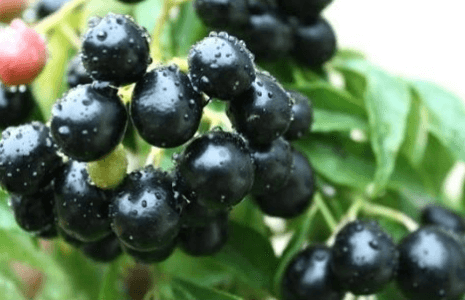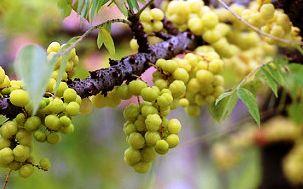Balm-(Melissa officinalis) Labiatae Perennial

This refreshingly lemon- scented herb is propagated by seeds, cuttings, and root division in spring, and in temperate climates again in autumn. It likes moist, rich soil and sunshine for part of the day. It grows to 75 cm (2 ½ ft) or more, depending on soil and rain fall.
Although a member of the mint family, the shallow roots of balm (or lemon balm as it is often called) are not invasive and it can be grown in a herb garden quite easily. In summer, from being a low, leafy clump , the plant increases in height and sends out flower stalks with clusters of tiny white blooms climbing up them. Bees are very much attracted to balm blossoms (its botanic name of Melissa is derived from a Greek word meaning bee).
The fragrant leaves when dried are an excellent addition to a potpouirri blend. Balm planted near vegetables increases their flavour and resistance to diseases.
Balm has been highly regarded amongst herbs for many centuries, and the name is derived from “balsam” which ranks highs as a source of sweet- smelling oils.
This herb is native to the mountainous regions of southern Europe and has spread widely in the course of time through England, North America and parts of Asia.
Culpeper, who described all the plants he wrote about as being under the influence of specific heavenly bodies, says “ it is an herb of Jupiter and under cancer and strengthens the body in all its actions”.
Uses:
Culinary – Fresh lemon balm leaves, finely chopped and mixed with half the amount of chopped chives; make a delicious seasoning for chicken, fish, lamb or pork. Balm leaves also enhance the flavour of cooked buttered vegetables. Whole, washed balm leaves look attractive and lend their subtle fragrance to both fruit and savoury salads. For an old and tried pick- me-up, which also tastes pleasant, add a little fresh or dried balm to a pot of Indian tea.
Medicinal – The wonderful properties of balm are manifold; it eases griping pains and helps to dispel flatulence, while having a tonic effect on the stomach. Balm is also excellent for influenza as it induces mild perspiration. It aids the digestion and increases the appetite. It revives one on a hot day and is soothing as well. The early herbalists believed that it prevented senility and impotence and contributed to longevity. It was also believed to drive away melancholy; causing “the mind and heart to become merry …” Culpeper also claimed that it was good for the liver and spleen and that it eased the pain of gout.





